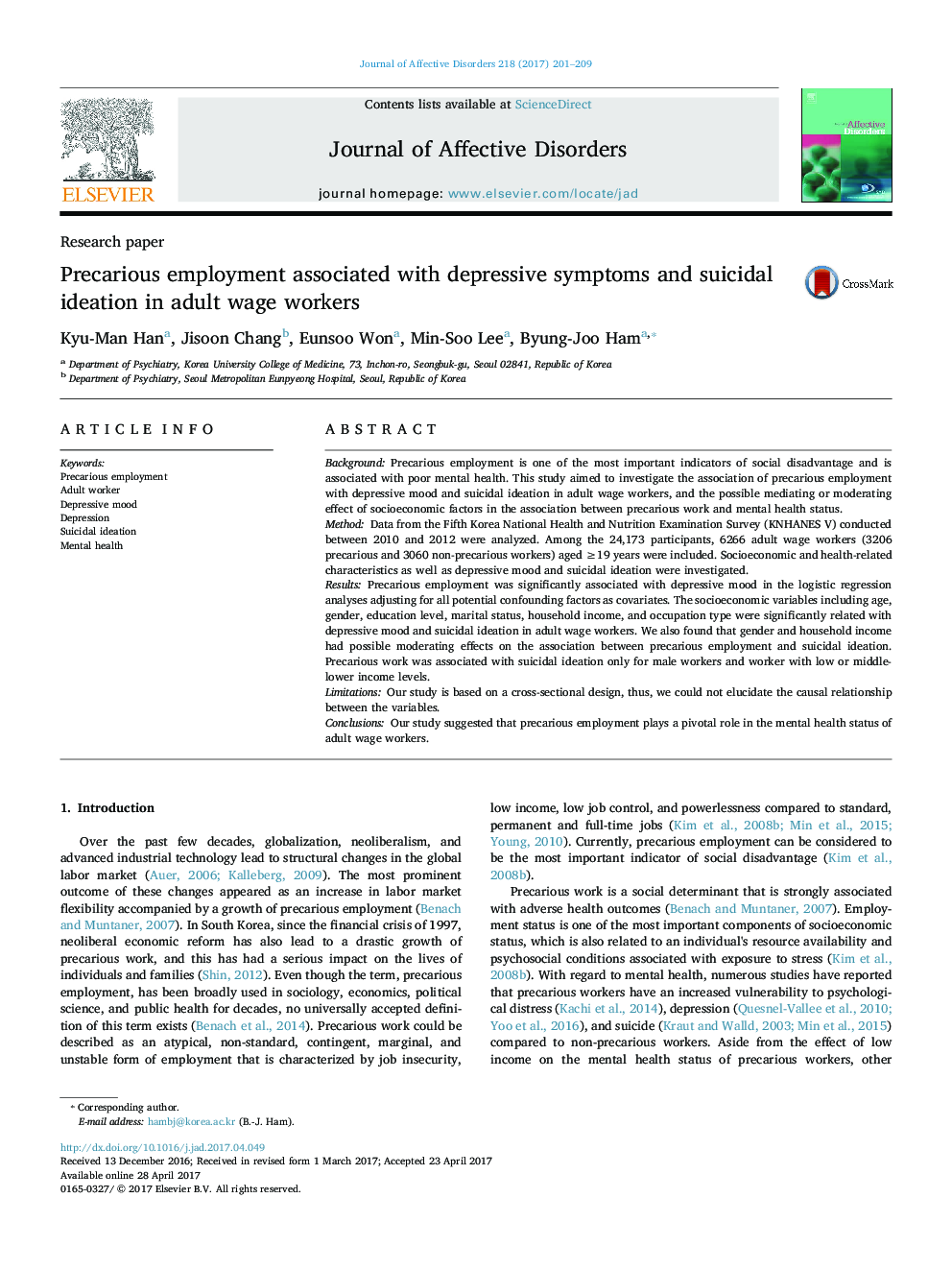| Article ID | Journal | Published Year | Pages | File Type |
|---|---|---|---|---|
| 5721948 | Journal of Affective Disorders | 2017 | 9 Pages |
â¢Relationship between precarious employment and mental health status was investigated.â¢Depressive mood and suicidal ideation were determined as mental health indicators.â¢Data of adult wage workers in nationally representative sample of Korean population.â¢Precarious work was associated with depressive mood and suicidal ideation.â¢Gender and income moderated the link between precarious work and suicidal ideation.
BackgroundPrecarious employment is one of the most important indicators of social disadvantage and is associated with poor mental health. This study aimed to investigate the association of precarious employment with depressive mood and suicidal ideation in adult wage workers, and the possible mediating or moderating effect of socioeconomic factors in the association between precarious work and mental health status.MethodData from the Fifth Korea National Health and Nutrition Examination Survey (KNHANES V) conducted between 2010 and 2012 were analyzed. Among the 24,173 participants, 6266 adult wage workers (3206 precarious and 3060 non-precarious workers) aged â¥19 years were included. Socioeconomic and health-related characteristics as well as depressive mood and suicidal ideation were investigated.ResultsPrecarious employment was significantly associated with depressive mood in the logistic regression analyses adjusting for all potential confounding factors as covariates. The socioeconomic variables including age, gender, education level, marital status, household income, and occupation type were significantly related with depressive mood and suicidal ideation in adult wage workers. We also found that gender and household income had possible moderating effects on the association between precarious employment and suicidal ideation. Precarious work was associated with suicidal ideation only for male workers and worker with low or middle-lower income levels.LimitationsOur study is based on a cross-sectional design, thus, we could not elucidate the causal relationship between the variables.ConclusionsOur study suggested that precarious employment plays a pivotal role in the mental health status of adult wage workers.
